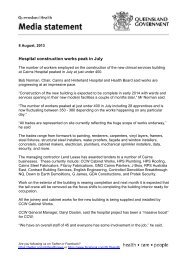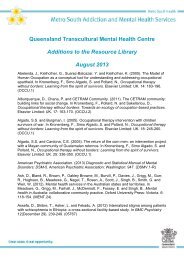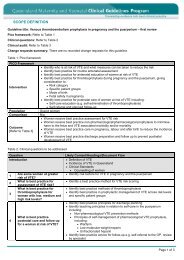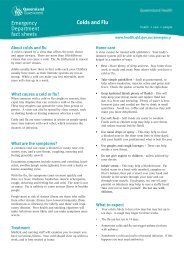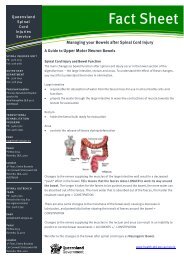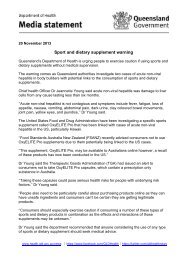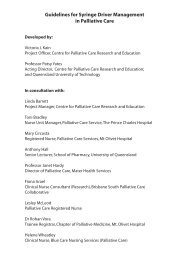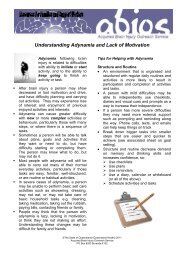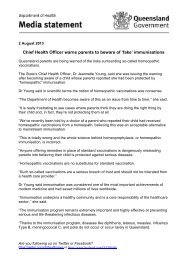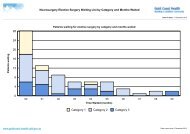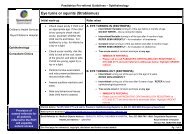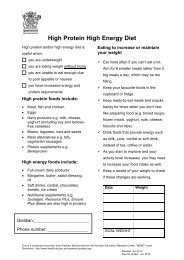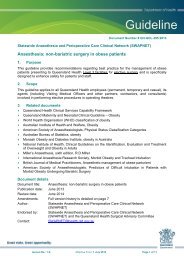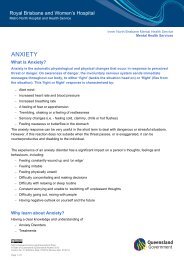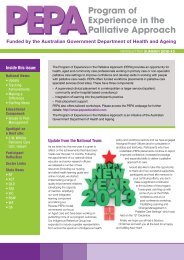Paediatrics - Queensland Health - Queensland Government
Paediatrics - Queensland Health - Queensland Government
Paediatrics - Queensland Health - Queensland Government
You also want an ePaper? Increase the reach of your titles
YUMPU automatically turns print PDFs into web optimized ePapers that Google loves.
6. Referral / consultation<br />
Consult MO immediately on all occasions if meningitis is suspected<br />
Most will require urgent treatment and evacuation / hospitalisation<br />
Respiratory problems<br />
References<br />
1. The Royal Children’s Hospital. Fluid management in meningitis. 2005 [cited 2011 March ].<br />
2. The Royal Children’s Hospital. Meningitis guideline. 2009 [cited 2011 March ].<br />
3. Therapeutic Guidelines. Meningitis: empirical therapy (organism or susceptibility not yet known). 2010<br />
[cited 2011 March].<br />
Upper respiratory tract infection - child<br />
Common cold, sore throat, tonsillitis<br />
Recommend<br />
Remember the symptoms and signs of an upper respiratory tract infection (URTI)<br />
may be a precursor to more serious illnesses such as meningitis<br />
Always be alert to the relationship between group A streptococcal sore throat and ARF<br />
/ APSGN. These complications are common and serious but potentially avoidable in<br />
Aboriginal and Torres Strait Islander children<br />
Ten (10) days of oral antibiotics, or one dose of benzathine penicillin IM, is required<br />
to eradicate group A streptococcus<br />
Background<br />
The vast majority of URTI are caused by viruses and do not require antibiotics.<br />
However a viral URTI can be complicated by secondary bacterial infection such as<br />
otitis media or pneumonia, requiring antibiotics<br />
Other complications include exacerbation of asthma<br />
Related topics<br />
Meningitis<br />
Immunisation program<br />
Pneumonia<br />
Acute otitis media<br />
Pertussis (whooping cough)<br />
Croup / epiglottitis<br />
Bronchiolitis<br />
1. May present with<br />
• Watery or purulent nasal discharge and / or sneezing<br />
• Sore / red throat and / or tonsils with or without pus<br />
• Difficulty swallowing, cough, chest wheeze, earache<br />
• Enlarged tender cervical (neck) lymph nodes<br />
• Fever, headache, general malaise<br />
2. Immediate management Not applicable<br />
3. Clinical assessment<br />
• Take patient history including:<br />
- - past episodes, history of asthma, complications such as ARF / APSGN<br />
- - otitis media, measures taken to treat including medications taken<br />
• Perform standard clinical observations +<br />
-- collect urine for MC/S and test for nitrates<br />
• Perform physical examination including:<br />
-- overall appearance e.g. smiling? agitated? lethargic?<br />
-- respiratory effort e.g. chest recession, nasal flaring, grunting (noisy breathing),<br />
abdominal breathing<br />
-- inspect the ears, nose and throat<br />
Primary Clinical Care Manual 2011 Controlled copy V 1.0 561



